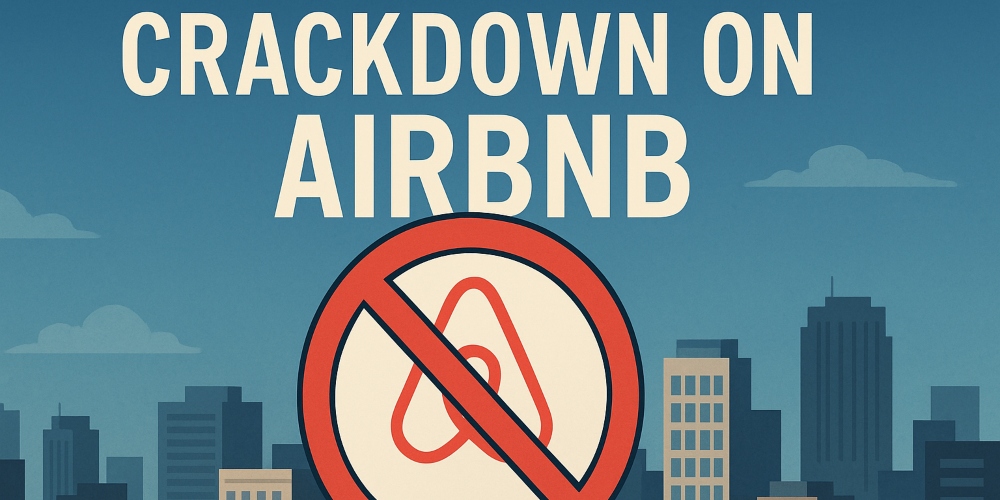Once hailed as a disruptor of the traditional hospitality industry, Airbnb now finds itself at the centre of a global regulatory reckoning.
From Europe to the United States and Australia, cities are introducing stringent measures to curb the proliferation of short-term rentals, aiming to address housing shortages, community disruptions, and the erosion of local neighbourhoods.
Spain has emerged as a frontrunner in the movement against unregulated short-term rentals. In May 2025, the Spanish government mandated Airbnb to delist over 65,000 properties lacking proper licensing or ownership information.
- Barcelona has announced plans to eliminate all 10,000 short-term rental licenses by 2028, aiming to convert these properties into long-term housing.
- Madrid has introduced new regulations to limit tourist rentals, particularly in the historic centre, to address the housing crisis.
- Malaga has banned new short-term rentals in 43 neighbourhoods where over 8% of homes are already used for tourism. Alicante has announced a two-year ban on new short-term rentals starting December 2024 to alleviate housing pressures.
In April 2024, mass protests erupted in the Canary Islands, with residents demanding limits on tourism to protect local welfare and the environment.
Las Vegas has implemented rigorous rules for short-term rentals. Hosts must obtain a short-term rental license, comply with zoning laws, and meet minimum insurance requirements of $500,000. The property must be owner-occupied during rentals, meaning the owner must live on-site during guests’ stays. Short-term rentals must be at least 660 feet apart and 2,500 feet from resort hotels. In April 2024, Clark County sent denial notices to applicants with incomplete or ineligible applications for short-term rental licenses. Operating without a valid license is prohibited and may result in enforcement action.
Australia presents a diverse landscape of short-term rental regulations, varying by state and local councils.
- From January 2025, Victoria will impose a 7.5% levy on short-stay accommodations booked through platforms like Airbnb and Stayz. This levy aims to fund social and affordable housing, with 25% allocated to regional areas. Local councils and owners’ corporations will also receive new powers to regulate or limit short-stay accommodations.
- In Greater Sydney, unhosted short-term rentals are capped at 180 days per year. Byron Bay has implemented a stricter 60-day cap for unhosted properties to address housing shortages. Hosts are required to register their properties with the NSW Government’s Short-Term Rental Accommodation (STRA) Register.
- In Western Australia, a new state-wide register for all short-term rental accommodation properties will be established, requiring all properties to be registered by January 1, 2025. In the Perth metropolitan area, unhosted short-term rentals exceeding 90 nights per year will require planning approval.
- Queensland is considering creating a register for short-term rentals to support local governments in monitoring activity and informing evidence-based regulation. A review found that short-term rentals are most prevalent in high-tourism coastal areas but have a limited impact on rental affordability.
Several other cities have taken steps to regulate short-term rentals. New York City has implemented Local Law 18, requiring host registration and strict operating rules, significantly reducing Airbnb listings. Berlin requires property owners to obtain permits for short-term rentals, with fines for illegal listings. Paris enforces strict regulations on short-term rentals, including registration requirements and limits on rental days. Amsterdam introduced new rules for Airbnb hosts in 2022, including registration and limits on rental days.
As cities worldwide grapple with housing shortages and community concerns, the era of unregulated short-term rentals appears to be waning. While platforms like Airbnb have revolutionised travel and provided income opportunities for hosts, the push for regulation underscores the need to balance tourism with the rights and needs of local residents.
For travellers and hosts alike, staying informed about local regulations is more crucial than ever.









